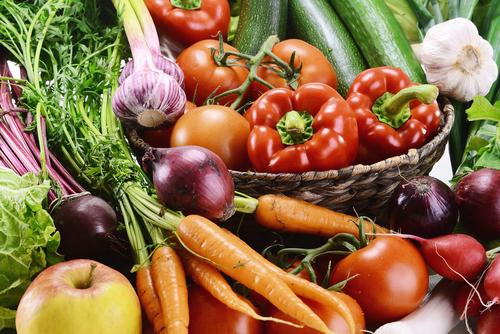 I get a lot of questions about raw diets - and if they’re a health alternative or simply over-hyped.
I get a lot of questions about raw diets - and if they’re a health alternative or simply over-hyped.
As with most things in the health and fitness world, the answer isn’t cut and dry or black and white. If you’re looking for a simple yes or no, you won’t find it.
It’s accurate to say that there are aspects of a raw diet that are very healthy. Most raw diets are heavily plant-based - and most of us aren’t getting enough fruits and vegetables. Diets that include plenty of nutrient-rich fruits and vegetables are associated with a number of health benefits.
Raw diets also eliminate most processed foods. As such, raw diets tend to have lower amounts of sugar, sodium and trans fats.
It’s also true that some foods are healthier when eaten raw. Heat can destroy some nutrients and reduce the benefits of certain foods. For example, the benefits of extra virgin olive oil are greatly reduced once it’s heated beyond 375 degrees Fahrenheit. Moreover, by eating raw foods, you never have to worry about charring meats - and the carcinogens created by that process.
However, not all foods are healthier when consumed raw.
David Katz, M.D., who is director of the Yale Prevention Research Center, notes:
Raw food advocacy ignores the fact that some foods are more nutritious when cooked. The nutrient lycopene makes tomatoes red. It is a potent carotenoid antioxidant, long thought to reduce prostate cancer risk, although that effect per se is in doubt. Lycopene is fat-soluble, and much more “bioavailable” - that is to say, available for absorption and making contributions to our health - when tomatoes are heated in combination with an oil. Tomato sauces with olive oil are ideal, and raise blood lycopene levels far more effectively than eating raw tomatoes.
There’s another reason we cook food. To kill harmful bacteria and thus prevent us from getting sick. Uncooked and unpasteurized foods are more prone to illness; as such, raw diets aren’t recommended for young children, pregnant individuals or the elderly. If you have a weak immune system or chronic illness, then a raw diet probably isn’t a good fit.
Nutritional deficiencies can also become problematic. Protein and calcium, for example, are commonly deficient in raw diets. While it’s possible to get a balanced diet while eating raw, the reality is most people are ill-equipped or lacking the time and effort to formulate a proper nutrition plan.
For most of us, it makes more sense to incorporate those aspects of raw dieting that are healthy and sustainable rather than following the diet fully and completely.
But what do you think? Have you ever tried a raw diet?









Never tried it. But you got me with those tomatoes, gonna try it. Let´s experience the difference! 🙂 Thanks again, Davey.
I’ve been on a raw diet for almost 30 years. It is with this personal history in mind that I share my thoughts here:
If you need more lycopene than what your raw tomato is providing, just eat more tomatoes.
I developed more muscle on a raw diet than I ever had eating a cooked diet. I think the undamaged, unheated amino acids in my raw food made the difference.
I got sick with colds and flus much more often on a cooked diet than I do on a raw diet. I can count the number of illnesses I’ve had in 30 years on just one hand. I think my immune system was weaker before raw and got stronger after going raw.
My mom, who is just starting her 9th decade of life, switched to a raw diet in 2005 and says she feels like she’s in her 50’s now.
I think there is a life force in raw food that isn’t in cooked foods, in the same way that a raw seed will grow into a plant whereas a cooked/toasted seed won’t.
Food for thought.
By the way, I love your videos, Davey. 🙂
Hello, I thought this was a great blog. Thank you for posting.